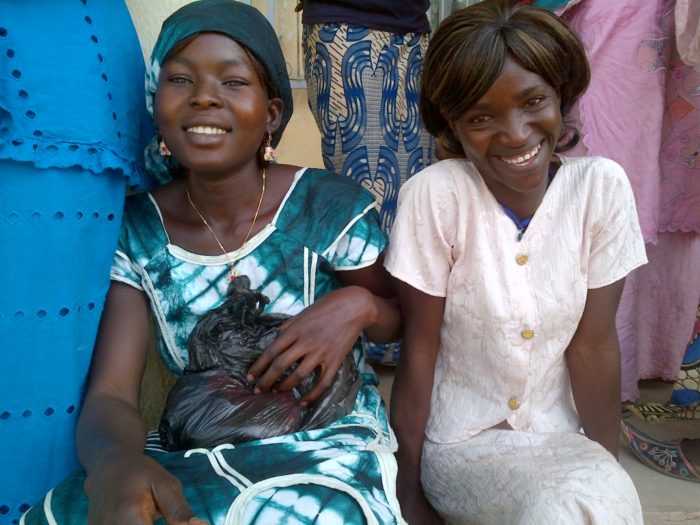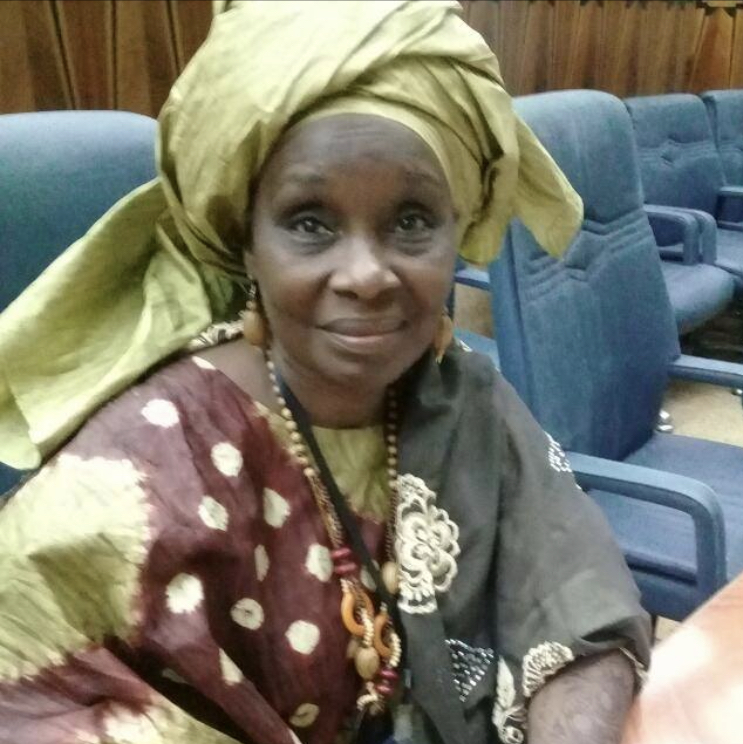Knowledge-sharing, education key to ending child marriage in Cameroon
Story

When Sakinatou (Saki) Bobo was 17, her mother and father were faced with a difficult decision. Approached by a much older man with an offer of marriage, Saki’s parents knew that agreeing to this proposal meant they would no longer face the financial strain associated with supporting their daughter.
But they also knew that there must be an alternative solution, one that would give their daughter more opportunity in life – to receive an education and to make her own choices.
That’s why Saki’s mother, Salamatou, reached out to local advocate and leader Queen Moustafa in the village of Dennsa, Northern Cameroon. Queen Moustafa is a member of Queens for Peace, an advocacy group working to end the practice of child, early and forced marriage (CEFM) in Cameroon, with support from Cuso International.

Local advocate and leader Queen Moustafa
“It is my privilege to educate women and girls about the many risks associated with CEFM. I am committed to acting as a guardian over my fellow women and village by informing them of these realities,” says Queen Moustafa, who speaks regularly to women in her community about the dangers of certain cultural practices such as child marriage. “If we unite to abolish CEFM, we also fight to abolish gender-based violence and poverty.”
In Cameroon, 30 per cent of girls between the ages of 15 and 18 are currently married. A violation of human rights, the practice of CEFM significantly reduces young girls’ chances of receiving an education and “perpetuates inequality, gender-based violence and a cycle of oppression that keeps girls and women dependent on their husbands,” explains Ginette Sindeu, Project Manager, Cuso International Cameroon.
By equipping influential women and traditional leaders such as Queen Moustafa with the knowledge and skills they can use to educate others, Cuso International and local partners are investing in long-term change that will provide girls and women with more freedom to create their own livelihoods – and that will improve gender equality in Cameroon for generations to come.
“Cuso International recognizes that creating long-term impact happens at a local level and Women in Alternative Action (another advocacy group) and Queens for Peace have the reach, respect, and influence needed to put an end to this violation of women and young girls’ rights,” says François Awounkeu, Cuso International Country Representative, Cameroon.
After meeting with Queen Moustafa, Salamatou decided to change course and not let her daughter enter a marriage she was not physically, emotionally, or mentally prepared for. “The offer of a financial allowance to pay for Saki’s schooling removed financial concerns and allowed her to continue her studies,” says Queen Moustafa.
Saki has now completed her high school diploma – one of only 48 per cent of Cameroonian girls to do so – and she will have the opportunity to further her education.
“I believed I was honouring tradition and doing what was best for my daughter by marrying her off at a young age,” says Salamatou. “I now know and appreciate that education is the only solution to ending a practice that puts young girls’ lives and livelihoods at risk. I am grateful to Queen Moustafa for adjusting my crown and the crown of my daughter. I hope Saki will grow to be a strong, influential woman like Queen Moustafa one day.”
Child marriage is just one of the many gender-based challenges faced by women and girls in Cameroon. Thanks to the generous support of our donors, Cuso International works with partners like Queens for Peace to provide education and training, so women and girls can avoid being dependent on someone else for their futures. To support our efforts, donate today.